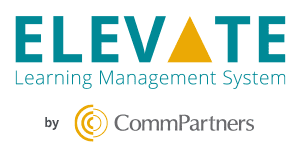Note: We re-aired this insightful interview in December 2022. For the most recent version, with more detailed show notes and a transcript, see “Redux: The Surprising Truth About Human Behaviors and Learning with Dan Pink.”

Understanding the science behind topics related to human behavior can be extremely powerful for learning businesses. And Daniel H. Pink is the author of six provocative bestselling books that uncover the truth about these complex behaviors including, Drive: The Surprising Truth About What Motivates Us, To Sell Is Human: The Surprising Truth About Moving Others, and, most recently, When: The Scientific Secrets of Perfect Timing.
Dan Pink is also the creator of the Pinkcast, a series of short videos that feature science-based tools and tips for working smarter and living better. And his TED Talk on the science of motivation is one of the 10 most-watched TED Talks of all time, with more than 23 million views.
In this episode of the Leading Learning Podcast, Celisa talks with Dan about several of the themes he explores in his books that have implications for learning businesses. This includes topics such as Motivation 3.0, learning goals vs. performance goals, persuasion, and the importance of timing when it comes to learning.
To tune in, just click below. To make sure you catch all of the future episodes, be sure to subscribe by RSS, Apple Podcasts, Spotify, Stitcher Radio, iHeartRadio, PodBean, or any podcatcher service you may use (e.g., Overcast). And, if you like the podcast, be sure to give it a tweet!
Listen to the Show
Read the Show Notes
Note: We re-aired this insightful interview in December 2022. For the most recent version, with more detailed show notes and a transcript, see “Redux: The Surprising Truth About Human Behaviors and Learning with Dan Pink.”
[00:18] – A preview of what will be covered in this episode where Celisa interviews bestselling author, Dan Pink.
[02:30] – Introduction to Dan.
[04:05] – An explanation of Motivation 3.0, including Motivation 1.0 and 2.0 (as discussed in Dan’s book, Drive).
[06:33] – Implications and applications of Motivation 3.0 for how learning businesses might better support the learners they serve.
[14:36] – A further discussion about how to make use of learning objectives/grades to ensure the focus is really on the learning goals as opposed to the performance goals.
Sponsor: CommPartners
[16:57] – CommPartners helps learning businesses conceive, develop, and fulfill their online education strategy. Their solutions begin with Elevate LMS, an award-winning learning platform that provides a central knowledge community and drives learner engagement. To extend the value of Elevate, CommPartners provides a wide range of online education services including curriculum design, instructional design, fully managed Webinars, Webcasts, livestream programs, and virtual conferences.
[17:46] – Advice for learning businesses to cultivate creative, heuristic, problem-finding skills (as outlined in To Sell Is Human).
[23:58] – Recommendations for learning businesses about how to leverage timing to achieve the best learning results and outcomes (based on research for When).
[30:11] – AUTHENTIC Learning Labs is an e-learning company that offers products and services to help improve your current investments in education. One key product is Authentic Analytics, a dedicated suite of visualization reports to help analyze and predict the performance of education programs. Organizations use Authentic Analytics to easily scan through volumes of data in intuitive visuals, chart performance trends, and quickly spot opportunities, issues, and potential future needs.
[30:59] – What Daniel sees on the horizon for humans and how we live—and implications for learning.
[37:15] -Daniel shares one of the most powerful learning experiences he’s been involved in, as an adult since finishing formal education.
[38:04] – How to connect with Dan and/or learn more:
- Web site: https://www.danpink.com
- The Pinkcast: https://www.danpink.com/pinkcast/
[42:15] – Wrap-up
If you are getting value from the Leading Learning podcast, be sure to subscribe by RSS, Apple Podcasts, Spotify, Stitcher Radio, iHeartRadio, PodBean, or any podcatcher service you may use (e.g., Overcast).
We’d also appreciate if you give us a rating on Apple Podcasts (formerly known as iTunes) by going to https://www.leadinglearning.com/apple. We personally appreciate your rating and review, but more importantly reviews and ratings play a big role in helping the podcast show up when people search for content on leading a learning business.
And we would be grateful if you check out our sponsors for this quarter. Find out more about AUTHENTIC Learning Labs and CommPartners.
Finally, consider telling others about the podcast. You can send a tweet by going to leadinglearning.com/share. You can also Like us on Facebook at facebook.com/leadinglifelonglearning and share us with others there. However you do it, please do help to share the good word about the podcast.
[44:04] – Sign-off
See also:
- Redux: The Surprising Truth About Human Behaviors and Learning with Dan Pink (Note: This is the most recent version of this episode.)
- Exploring Motivation and Learning
- Getting Contagious – and Curious – with Jonah Berger
- Defining and Designing Social Learning
- Pre-suaded to Learn with Robert Cialdini



 How to Choose a Learning Management System (LMS) – and Get It Right
How to Choose a Learning Management System (LMS) – and Get It Right
Leave a Reply